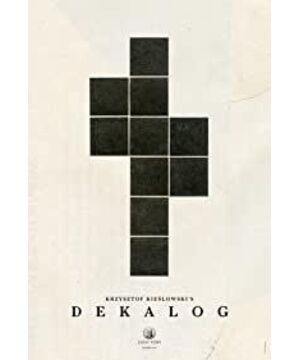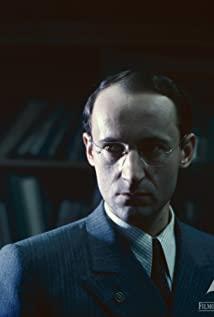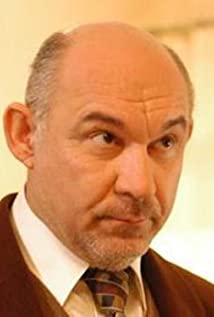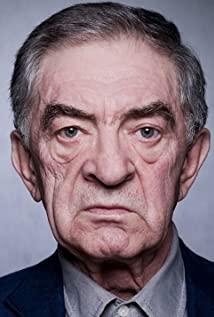The fifth of the Ten Commandments, you must not kill.
This is the more famous one among the Ten Commandments. It is a little different from the previous ones. First of all, its plot is not between the simple characters like the previous ones. The setting is complicated, but very simple. A boy killed someone, and then he was killed by another group of people in the name of the law. Compared with the previous episodes, there is a hidden mystery in the setting of the plot. This time because of the shock of the incident itself. Sexuality makes the director more inclined to the ontology of the event instead of using complicated methods for in-depth discussions. Secondly, in connection with the previous, although the director’s consistent theme of fate and people can still be found in the middle of this movie (the man who was roasted in the first episode appeared again, he stood in front of the ruler in the middle of the road, before the boy killed someone. , There is still pity in the eyes, if there is no need to shake his head. The person carrying the ladder before the execution of the death sentence seems to be him.), but the director’s subtopic this time-who has the power to end another person’s life is almost with him The motif of the movie can be divided into courts, and the sub-themes of the first few parts are almost sticky to the motif, and it is difficult to distinguish clearly. This is probably the reason why this movie was later pulled out separately and filmed again. Indeed, it is too unique.
The first is the unique image style. If you remember, the previous four parts were basically performed in a cold and white tone, but this one was yellowed at first with a memory of memories. Once the boy who will later kill is shown in the picture, In the lens, the empty side of the boy's side will be blurred into black, in addition to giving people a prominence to the boy, some surrounding blurry shots even give people the feeling of squinting and prying. But when the first killing was over and the second killing started, the shots completely returned to the white cold and hard style of the past, especially during the death penalty, almost the smell of the final autopsy of the corpse in Yu Hua's "A Kind of Reality". It seemed that the camera itself was an expressionless on-site inspector. But after the scene ended, but at the end when I saw the painful and angry lawyer, the scene reverted to a kind of warmth, which seemed to be a comfort to the suffering man.
The second unique point is that compared with other movies, this movie not only has a consistent philosophical meaning, but also has a realistic level of criticism. For example, at the beginning of the film, the lawyer passed the qualification examination monologue, we can regard it as Keith’s own voice:
"The law should not imitate human nature. The law should improve it to regulate the relationship between individuals. Nowadays, we and our way of life are the result of the operation of the law. Whether we abide by it or violate it, human beings are free. His Freedom is within the scope of freedom not to harm another person. Punishment? Punishment is a kind of retaliation, especially when it is intended to hurt the offender rather than prevent crime. But the current law can be vengeful, it really is for the sake of innocent people Is it? Are the legislators really innocent?"
No word involves religion or God, and a series of controversies all point to the actual law itself. However, the problem is that when these questions are raised and returned to the ultimate, people still have to ask why the law conflicts with people? Why is the law not crime prevention but revenge crime? Is this law itself a crime? Therefore, the god who has not spoken out still has to show up as an arbitrator.
In the Wang Binyu case some time ago, the issue of the preservation and abolition of the death penalty has already been discussed fiercely. I will not specifically talk about the death penalty here, but only discuss the film on the film. The director has always been stern, but arranged for the lawyer to appear as his endorsement-it is hard to imagine that Kee will be uncomfortable, but then again, if he is still calm and cold on the issue of life If that is the case, I am afraid it is not a saint but an inhuman. The lawyer who is incarnation of reason is a sentimental person. The judge commented on him and said that you are too sensitive to be a lawyer. It was cold at the time. Does the lawyer have to be a machine?
The boy has almost no motives for killing. It can only be understood as the painful catharsis after being indifferent. He loves children. Whether it is the little girl modelling in the square or the pupils leaving school in front of the cafe, when he sees them, he always It was with a rare smile, but other times, even the old lady in the square scolded him for no reason, when he threw stones down mischievously, when he drove away the pigeons and knocked the man in the toilet to the ground, The gaze that finally got the attention made him feel happy, as for the murder, but another bigger prank, no different from the previous one, he was not much nervous, and he was almost as calm as tying a shoelace when preparing a rope. When killing people, he was extremely cruel, and the evil side of human nature was vividly manifested. Even though the director had sympathy for his death, he still did not shy away from every cruel detail of his killing-worthy of sympathy, does not mean that he is not guilty. Before he died, he revealed to the lawyer that he wanted to see him only because he called his name Jackie, which made him feel less alienated.
The driver in the film is very mediocre, even with a little bit of evil. He looks at the coquettish girl in the neighbors, and the passengers who don’t care about money. He uses the horn to scare away other people’s dogs. But when he throws cheese to a dog, When waiting for the children to cross the road in front of the zebra crossing, you think this person is still a little cute. There are two considerations for killing him. First, everyone has some small shortcomings and valuables, and no one has the ultimate power to judge others. Second, when the driver was still complaining about a piece of rag that hit him in the morning, he quickly became the victim of a murder. Yes, it went back to the motif, the impermanence of fate.
The same is killing. Why does the director sympathize with the former and criticize the latter? Because the former crime was carried out under the veil of human nature, it was a manifestation of evil, and the perpetrator himself did not know the horror of his crime. Later, when the court sentenced the boy to death, it showed that they knew the guilty of murder, but they still insisted on killing people when they knew that the murder was guilty, even because they wanted to protect people from being killed by murder! After Keith revealed the absurdity of this fact, what reason is there not to look at it differently?
In the warmth at the end of the film, the desperate lawyer shouted: I hate you! Who does he hate? Is it the system? Or the person who enforces the system? For example, when the executioner saw his dedicated and skillful inspection of the hanging instrument, I couldn't help but think of Adolf Eichmann, the Nazi officer stained with the blood of countless Jews. In the eyes of colleagues, they are all excellent and qualified. Civil servants of China are very efficient, but they are indifferent to the numbers and instruments, as if they are just insignificant data or factory equipment, and they can’t see the lives behind them. Stalin said that killing one person is a tragedy, and killing a million people is a statistic. Behind the dead souls, there are machines constructed by alienation of people. They are all functioning normally, but they are not humans.
The child is mentioned more than once in the film, Jackie’s sister, the girl laughing outside the glass window, the girl in the square, the photo in the photo studio, and the young lawyer. From the dialogue, we can tell that he also just did it. My father. Is the ray of light at the end hope? Is it a child?
View more about Dekalog reviews











